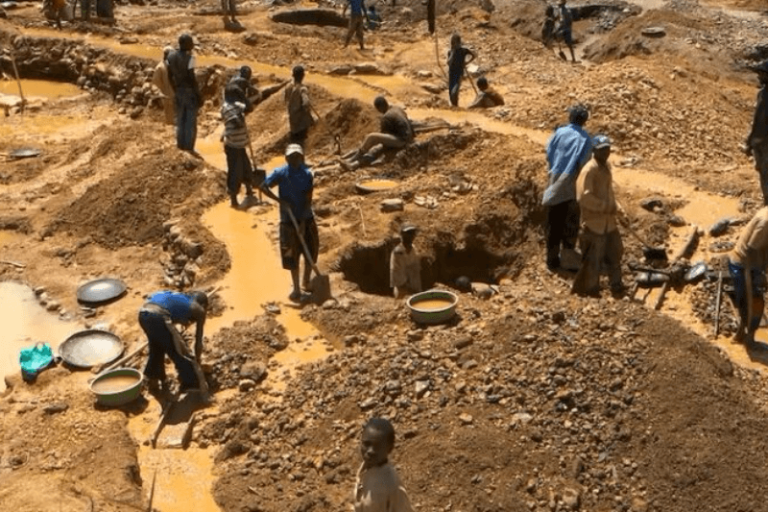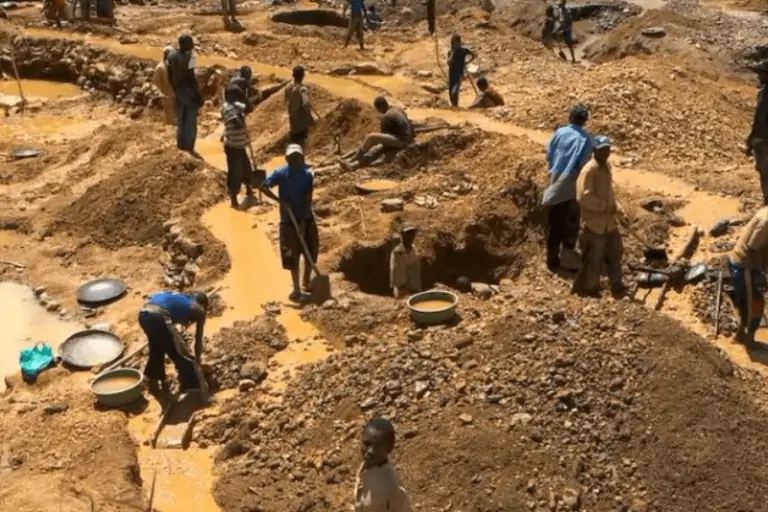

causes and effects of illegal gold mining ghana
The activities of illegal gold mining contribute enormously to the local economy of the communities in which these activities are carried out.
is carried out. However, despite these developments, these activities are accompanied by a number of environmental, economic, developmental, societal and educational challenges that governments, environmentalists and educators have been combating for several decades.
economic, developmental, societal and educational challenges that governments, environmentalists and educators have struggled to overcome over several decades.
The impact of illegal mining on climate change is significant. Using heavy machinery and chemicals in illegal mining releases large quantities of greenhouse gases into the atmosphere. These contribute to global warming, leading to climate change. Illegal miners’ destruction of forests and vegetation cover also reduces the capacity of these ecosystems to absorb carbon dioxide from the atmosphere.
The environmental impact of illegal mining is severe. Illegal mining uses heavy machinery and chemicals to pollute water bodies, destroy vegetation cover and cause soil erosion. Polluted water bodies caused by illegal miners have led to the contamination of drinking water sources in many communities in Ghana and other African countries. Illegal miners’ destruction of vegetation cover has also led to soil degradation, affecting agricultural productivity.
Illegal mining activities certainly have serious consequences for human health In Ghana and other African countries, illegal mining activities are having a major impact on water bodies. The Ghana Statistical Service reports that illegal mining activities have led to the injection of harmful substances or heavy metals into water bodies, resulting in higher water treatment costs. Effluents containing toxic chemicals such as cyanide and other organic chemicals used in ore processing can result in effluents with high acidity levels.
Today, 60% of Ghana’s water bodies are polluted, largely as a result of illegal mining activities. This has contaminated the drinking water sources of many communities in Ghana and other African countries. Pollution of water bodies by illegal miners has also affected the tourism industry in many African countries.
The economic impact of illegal mining on the communities affected is significant. The occupation of agricultural land and water bodies by illegal miners affects agricultural productivity and fishing activities. This leads to increased food insecurity and loss of livelihood for many people in these communities. Illegal miners’ pollution of water bodies also affects the tourism industry in many African countries.
The problem of illegal mining has become a major environmental and economic concern in Ghana and other African countries. Illegal mining has serious environmental impacts, including deforestation, soil erosion and water pollution. It also contributes significantly to climate change by releasing greenhouse gases into the atmosphere.
It is essential that African governments take urgent action to address this problem by enforcing laws against illegal mining activities and promoting sustainable mining practices.
National teams from Africa advance their World Cup qualification pursuit as they take part in Matchday 5 of the qualifiers.…
Creative Africa Nexus (CANEX) is running the Book Factory Prize for Publishing in Africa again to award $28,000 to African…
Canadian companies have expanded their presence as major African mining stakeholders and invested more than $37 billion. Africa holds the…
The South African government wants people to plant one million trees across the nation within a single day on September…
The government's statistics regulator showed that South African inflation stayed at 3.2% during February and rose below the projected 3.3%.…
Keywords: Cape Town, African Energy Chamber, Africa, The 2025 African Energy Week (AEW) will host the top energy leaders from…
This website uses cookies.